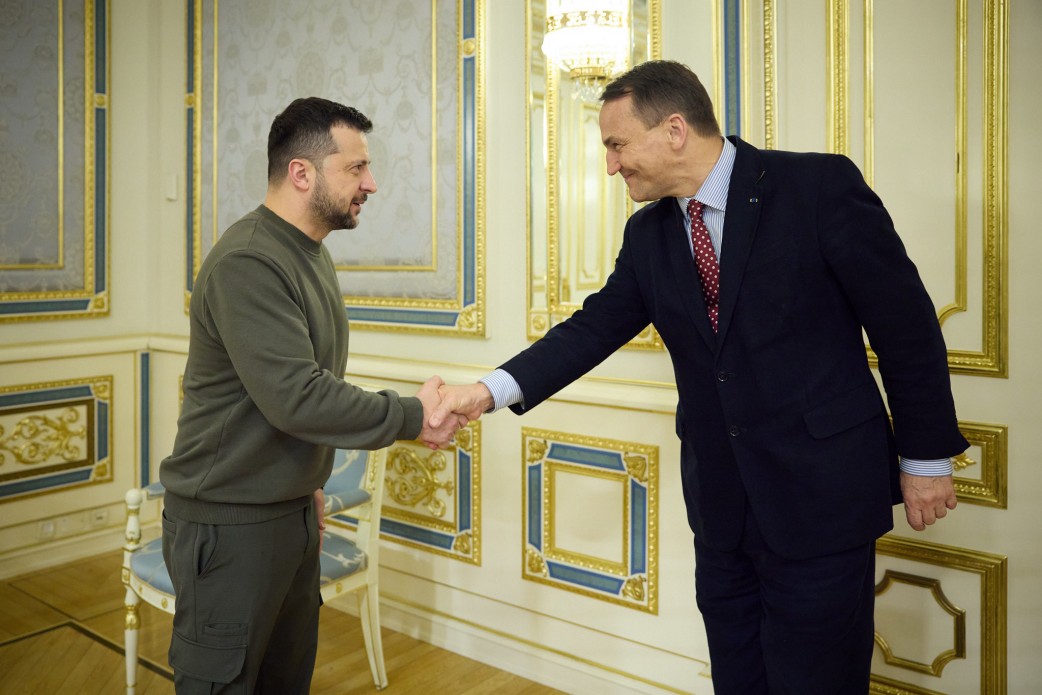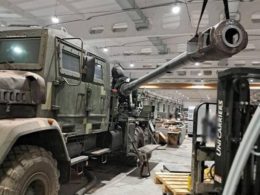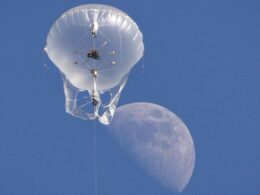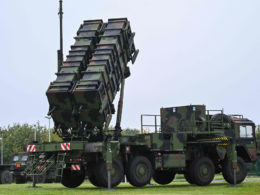Warsaw will host “the most important discussions” about the war in Ukraine next week, according to Polish Foreign Minister Radosław Sikorski.
The announcement comes amid controversy over German Chancellor Olaf Scholz's phone call with Vladimir Putin on 15 November after 2 years of hiatus due to the Russian aggression in Ukraine. The German government reported that during the call, Scholz condemned Russia's war, urged Putin to withdraw troops and engage in negotiations with Ukraine for a "just and lasting peace.”
Ukrainian President Volodymyr Zelenskyy criticized the Scholz-Putin call, warning it could "open a Pandora's box" and potentially weaken Putin's international isolation.
Putin expressed Russia's openness to resuming negotiations but insisted that any agreements must acknowledge the “new territorial realities” resulting from the war and address its root causes, which he attributes to NATO's “longstanding aggressive” policies.
This call marks a break in the Western diplomatic isolation of Putin since the full-scale invasion of Ukraine in 2022.
"The most important discussions about the war in Ukraine will be held in Warsaw. Next week, I will host a meeting in the Weimar Triangle Plus format," said Radosław Sikorski in Katowice, according to RMF24.
The meeting will bring together foreign ministers from France, Germany, and other key European nations, along with Ukrainian Foreign Minister Andrii Sybiha and EU's new High Representative for Foreign Affairs, Kaja Kallas.
According to Sikorski, Scholz promptly briefed Polish Prime Minister Donald Tusk about the conversation with Putin, emphasizing a key principle that "no decisions concerning Ukraine can be made without Ukraine."
Responding to questions about President Zelenskyy's concerns with the Scholz-Putin phone call, Sikorski indicated he was not yet familiar with Zelenskyy's specific comments, but he acknowledged the rapidly evolving diplomatic situation. "
“Things are accelerating. And that's why next week I will be hosting the Weimar Triangle Plus,” he said.
The core members of The Weimar Triangle are France, Germany, and Poland. The "Plus" format usually involves Ukraine as an additional partner.
When asked about potential direct dialogue with Putin, Sikorski referenced his previous message to Russia's UN Security Council representative, stating Russia "has enough land and doesn't need to conquer its neighbors' territories." He concluded by emphasizing his demand for Russian military withdrawal.
Regarding peace negotiations, Head of the Ukrainian President's Office Andriy Yermak outlined clear conditions: Russia must withdraw to pre-war positions before any dialogue can begin.
The Ukrainian government has consistently refused to cede any territory to Russia as part of a peace agreement. Ukraine also remains committed to its aspirations of joining NATO, despite Russian opposition.
The US has stated it would support negotiations if initiated by Zelenskyy.
Fox News, citing unnamed sources, reported that Donald Trump might appoint a peace envoy to mediate between Ukraine and Russia.
Russia insists on Ukraine recognizing its annexation of Crimea and the four oblasts it partially occupies (Donetsk, Luhansk, Zaporizhzhia, and Kherson). It demands that Ukraine renounce its bid to join NATO and adopt a neutral status. Russia also seeks official status for the Russian language in Ukraine and the adoption of laws targeting Ukrainian national identity.
Related:
- Zelenskyy calls Scholz-Putin phone call “Pandora’s box” weakening Russia’s isolation
- Scholz calls for peace in Ukraine during first phone call with Putin in two years
- Zelenskyy: Germany to deliver sixth IRIS-T air defense system to Ukraine by late 2024
- German Chancellor Scholz plans dialogue with Putin, first since late 2022
- Telegraph: Ukraine defense support at risk as German government dissolves
- Scholz caused German government crisis by denying Ukraine Taurus missiles, fired minister says





